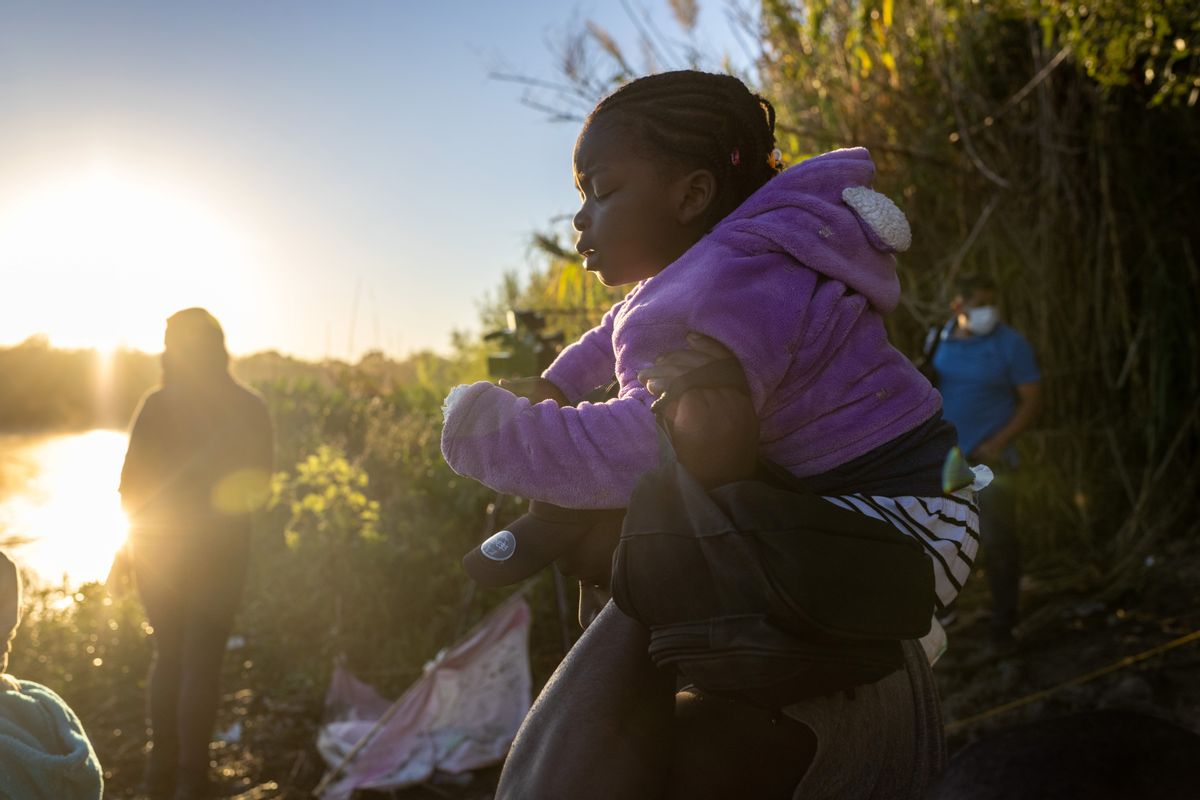Loving thy neighbor and serving the poor are the foundations of what it means to be a faithful Christian. For more than and 200 years, this "Christian nation" has failed in that calling. Back when Haiti gained independence from the French in 1804, John Adams wanted to recognize Haiti as an independent country. He hoped to open trade with the newly formed government, but Thomas Jefferson refused, out of fear that American slaves would start to see themselves as equal. In the modern era, any new immigration laws created either by Democrats or Republicans over the last 50 years always finds a way to ignore the needs and requests of the Haitian people. Apparently, Haiti is too poor and too Black for America to love and to serve. The church has failed Haiti, the politicians have failed Haiti and America has failed Haiti.
Somewhere along the line in American Christianity, loving thy neighbor became loving ourselves, and serving the poor became the conviction that the poor get what they deserve. I hear it all the time. It is found in every level of our culture, in our books, our movies, in politics and certainly in the church.
"Blessed are the poor." That's the opening phrase of the Sermon on the Mount, and also of the sermon I gave in Cité Soleil, Haiti, in 2001. This was in a tiny church, in an upper-story room, and I had no prior knowledge I would even be preaching. It is a message that everyone in that room completely understood — and one that has remained a complete mystery to the American church. In America, those that have are blessed, and those that are blessed, have. In God's kingdom, however, the first are last, the cursed are rich and the blessed are poor.
The sermon continues with, "blessed are those who mourn," a phrase that was all too familiar for the Haitian people in that room. Death and loss is all around these amazingly resilient people. Their faith never wanes, their smiles never cease and their sense of God's blessing always remains. In America, where we have so much, our faith is limited, our smiles are infrequent and our sense of self-worth is minimal.
"Blessed are the meek"? Seriously, is anyone in the U.S. willing to embrace such a phrase? Those of us who have been put upon and forced to submit understand this phrase well. None of us enjoy the experience, but Christ believed the earth was ours. I can say that the Haitian people in that church that day knew this phrase well and their screams of "Amen" began to get louder. If there is such a thing as the Holy Spirit, then that small upper-room church in the poorest city in the Western Hemisphere was filled with it more powerfully than I have felt at any other moment in my life.
The sermon continues with blessings for those who hunger for justice, for those who show mercy and for the peacemakers. It was as if Jesus spoke these words specifically for the Haitian people. American evangelicals have attempted to reclaim that passage, but in their hearts they know those words are not for them. This is why evangelicals try to focus their attention on words that Christ never spoke — because he never once spoke about the values of current American white evangelicals. But with every phrase I spoke that day in that small upper-room church, the amens grew louder and louder.
And then I got to this phrase: "Blessed are those who have been persecuted for righteousness." The man who interpreted my sermon into Creole preached as if we had worked together for years, despite the fact that we had never met before and have never met since then. After I spoke these words from Christ I asked the church, "Have you not been persecuted?" Once my Haitian preaching partner repeated my words, the church exploded with the loudest and most passionate "Amen" I have ever heard. I was surprised the roof hadn't been blown off. That is still the most powerful moment I have experienced in all my years of ministry. The Haitian people knew that Jesus was speaking to them. They were seen and heard and loved, and their reward was to come.
As I watch Haitians being turned away at the Mexican border with such disdain and violence, I remember my time in Haiti. I remember the words of my savior in Christ. I remember the calling upon all Christians and the calling upon what some people try to call a Christian nation. We are lost today in the United States, in desperate need of a better understanding of what it means to be a member of a community. We are selfish, self-obsessed, isolated, hateful, greedy and lacking in empathy for anyone who is not experiencing our own painful path.
The Haitian people have very little but they know what it means to have faith. They understand community, they understand family, sacrifice, suffering, defeat, mercy, grace, love and forgiveness. These are the elements we are missing, and when we turn these people away at the border we turn our backs on what it means to be human. For supposed people of faith, to reject the Haitian people is to reject Christ. This could mean, if you believe in such things, that our lack of mercy will be applied against us when we look for entry into the kingdom of heaven. It certainly means we are lost and unhappy here on earth. The U.S. has so much potential and so much possibility to show love, grace and mercy. If we are to survive this trying time in our nation's history, we must look to those who already have these traits and try to live accordingly.



Shares